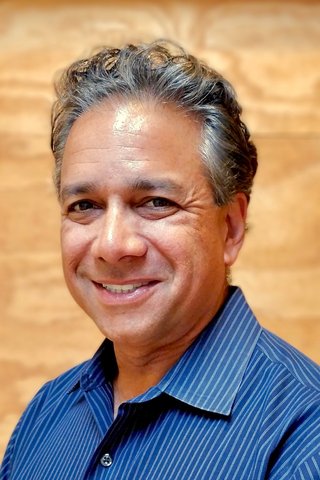During the arc of his decades-long career as a pediatric critical care specialist, most recently at UCSF Medical Center, Arup Roy-Burman has witnessed technology and research drive the complexity of medicine exponentially.
“While it’s been exciting to see that growth, for folks on the front lines, there’s no way they can keep up with it all,” said Roy-Burman, pointing to the divide between the institutional knowledge that’s constantly ballooning and actual practice. “What that gap does is it causes inconsistencies. Most importantly, it means errors.”
A recent Johns Hopkins study found that these kinds of medical errors are the third leading cause of death in the U.S., about 10 percent of all deaths.
Hoping to stave off these kinds of preventable mistakes, he co-founded Elemeno Health along with Electronic Arts veteran Ed Nanale in 2016. The software company provides a cloud-based platform and mobile app full of interactive guidelines, checklists and how-to videos. Elemeno is targeting the four million nurses nationwide, along with hospitals’ ancillary staff.
Dating back to 2012, Roy-Burman began prototyping the tool while head of the Pediatric Intensive Care Unit for UCSF Benioff Children's Hospital. In 2016, Elemeno was accepted by Y Combinator, the first UCSF startup to go through the renowned accelerator.

“It was external affirmation that there was commercial viability,” said Roy-Burman.
Later that year, Elemeno’s first commercial product was ready to ship. Since then, the company’s contracts have grown 10x year over year, Roy-Burman said, with four hospitals, including UCSF Benioff Children’s Hospital in San Francisco and Oakland, and six health centers in Alameda County in tow. The cost for hospitals that start by deploying to a few of their departments is less than $50,000. For the entire hospital (all departments) the cost is in the low six figures. The Oakland-based company has 10 employees and $2.3 million in funding to date.
Cindy Collinson, a clinical nurse educator in Benioff Children's Hospital Oakland's NICU, is tasked with incorporating this "just in time resource," along with the hospital's host of other training practices, for the department's 150 nurses. For their how-to guides, Collinson works with staff nurses to do the video taping and write the scripts using the hospital's evidence-based policies. Then, she sends the materials over to Elemeno to do the editing, closed captioning, tagging and uploading to the website.
A common use of Elemeno is rolling out new equipment, Collinson said. After training and practice on the equipment, nurses need to begin using it on patients.
"It's a preceptor in your pocket," Collinson said. "Nurses can quickly pull up a 30 second video to perform the steps."
Already, both Benioff Children’s Hospital Oakland and Children's Hospital New Orleans have expanded their use of Elemeno to their entire inpatient nursing operation, as well as ancillary staff such as respiratory therapists. Collinson said that for her department alone, the website has likely gotten a few thousand hits since starting out in November.
"They are loving it," she said. "The initial investment is high right now. There's a learning curve, but now I'm getting faster."
The cloud-based platform allows cross-hospital collaboration, with managers from the similar-sized children’s hospitals in Oakland and New Orleans able to talk with their peers and exchange best practices. There’s also been a growing alignment between UCSF’s Oakland and San Francisco children’s hospitals, Roy-Burman said.
“We see these contracts as ones that can continue to grow,” Roy-Burman said, “because that basic concept of closing the knowledge practice gap, and of being able to share knowledge across your institution, that value proposition just gets better and better with the more groups that come on.”
Going forward, Roy-Burman hopes to focus on seeking out more hospital systems as they expand nationwide.



